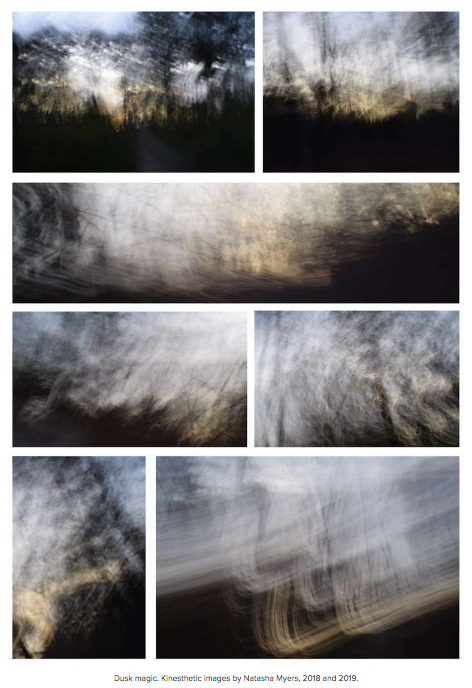Alright alright, #Distribute2020
Loop 3, the final loop for May 8th, will go live in 5 minutes, starting with "Performances of Public Anthropology" · "Performances de antropología pública"
Missed all 3 loops? Never fear, you can watch all the panels 'on demand' on the website.
Loop 3, the final loop for May 8th, will go live in 5 minutes, starting with "Performances of Public Anthropology" · "Performances de antropología pública"
Missed all 3 loops? Never fear, you can watch all the panels 'on demand' on the website.
https://twitter.com/culanth/status/1258545908297265152
Penelope Papailias, drawing on their work creating games 'death cafes', says that experimental methods shouldn't just be added to ethnographic toolkits - to experiment is to design a public encounter among non-experts, rather than just representing data
#Distribute2020
#Distribute2020
Alexandra Siotou's research in stand-up comedy shows that experimental methods can 'vulgarise' anthropological concepts in productive ways - adopting stand-up as a genre offers new methods for the anthropological project of disrupting the familiar
#Distribute2020
#Distribute2020
Penelope Papailias suggests that experimentation blurs the border between research and dissemination - the feedback loop between the two means that research never 'sends out' answers into the world, but constantly refines better and better questions
#Distribute2020
#Distribute2020
Aris Anagnostopoulos' archaeological work has sought more careful public involvement in research, without relying on uncritical ideas of 'community' - and provides a prototype for other forms of experimental, public-facing research
#Distribute2020
#Distribute2020
Anagnostopoulos' team set up an artistic studio, which offered a means of working against gender structures, showing how experimentation may exceed initial research design. This required public explanation - so they penned this to the melody of a local song
#Distribute2020
#Distribute2020
"We didn't become the chief poets of the village, but our relation with the public was transformed because we were speaking their own language" - Anagnostopoulos
#Distribute2020
#Distribute2020
Eleana Yalouri notes interdisciplinary experimentation ignites disciplinary boundaries of ethics and epistemology. They made a film from YouTube clips about the Greek Crisis, and anthropologists critiqued the film's humour and ambiguity - but audiences laugh for multiple reasons
Aris Anagnostopoulos - 'Attention economy' suggests 'the public' can be discussed in binaries of 'interested' or 'not interested' - but 'the public' is not easily measured; these are complex gradations of feeling that shift during a project's lifetime
#Distribute2020
#Distribute2020
Alexandros Papageorgiou found that using standup as a genre shifted their data - even when they changed from jokes to serious content in their performance, people still laughed! Public anthropology shows that audiences reshape anthropological concepts and data
#Distribute2020
#Distribute2020
Does experimental research reinforce neoliberal ideas about technology, infotainment and gamification? Penelope Papailias' shows that experimental games need not have ends or even be fun - they're about encountering unexpected outcomes
#Distribute2020
#Distribute2020
Eleana Yalouri - knowledge is not a finalised and pre-determined product, like a book or a paper, but is a middle ground between theory and practice. Experimentation foregrounds that collaboration, unpredictability, and - even - fun can be cultural critique
#Distribute2020
#Distribute2020
Okay, Performances of Public Anthropology is now in the Zoom Hall! The whole panel is about games, comedy, and new publics, so it's sure to be a fun conversation!!
#Distribute2020
#Distribute2020

@anandspandian asks how the 'openness' of experimental methods relates to the more closed narrative arcs of the texts we're accustomed to - can this open-endedness be written into anthropological narratives?
Alexandrou Sitou and Alexandros Papageorgiou suggest that standup comedy is open-ended, in terms of presenter-audience interaction, but this openness is still part of a closed structure - the expectations of a 'comedy set'
#Distribute2020
#Distribute2020
Several questions from the crowd - how can the academy take seriously these diverse types of publication? I (@backup_sandwich) love the idea of peer reviewing an anthropology stand-up comedy set!
#Distribute2020
#Distribute2020
• • •
Missing some Tweet in this thread? You can try to
force a refresh









